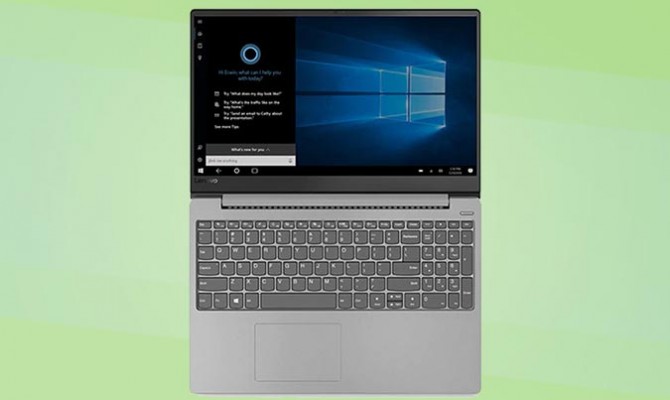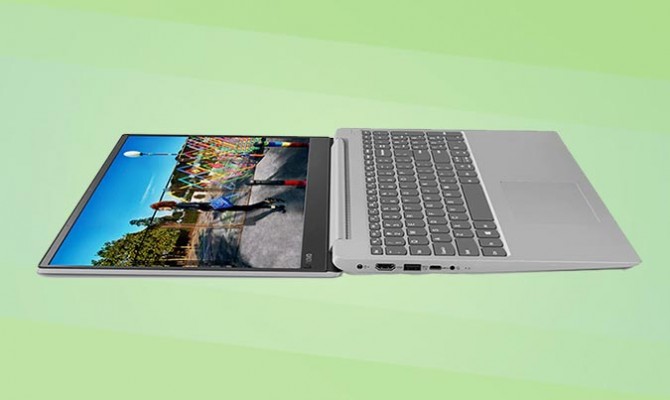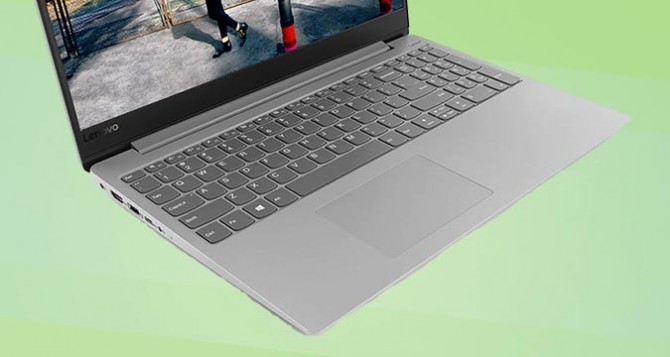Is the Lenovo IdeaPad 330s Worth Buying?
Gaming laptops are all the rage these days, but you'd be hard-pressed to find a decent rig under $1,000. For well under four figures, the IdeaPad 330s is a relatively portable, 15.6-inch laptop that comes with an optional Nvidia GPU.
If you don't need as much power, the 14-inch IdeaPad 330s gets you a premium design and solid performance for under $500. With an impressive price-to-spec ratio, the IdeaPad 330s is a good option if you're looking for a sleek midrange gaming machine or a low-cost budget laptop.
| Row 0 - Cell 0 | Lenovo IdeaPad 330S |
| Price | $399 - $899 |
| Display | 14-inch (1366 x 768); 14-inch or 15.6-inch (1920 x 1080) |
| CPU | Core i3-8130U, Core i5-8250, Core i7-8550U |
| RAM | 6GB, 8GB, 12GB |
| Graphics | UHD Graphics 620, GeForce GTX 1050 |
| Storage | 1TB HHD, 256GB SSD, 512GB SSD |
| Ports | USB Type-C, 2 USB 3.0, HDMI, SD card reader, headphone |
| Colors | Platinum Grey, Onyx Black |
| Size | 14.1 x 8.8 x 0.8 inches |
| Weight | 4.5 pounds |
The IdeaPad 330S has a simple, no-nonsense design. The chassis is made of polished aluminum, giving it a more premium "feel" than the price suggests. A small dark-gray Lenovo tag graces the side of the lid, and a matching keyboard provides the only bit of contrast to the light-gray color scheme. The thin bezels surrounding the display — even on the budget model — is a nice addition. The laptop also has a solid range of ports, including a USB-C port, two USB 3.0, an HDMI and an SD card reader.
At 4.85 pounds and 14.1 x 10.2 x 0.9 inches, the 15-inch IdeaPad 330S is lighter and smaller than other budget gaming laptops, like the Dell G3 15 (6.3 pounds, 15.3 x 10.8 x 0.9 inches) and Acer Nitro 5 Spin (4.9 pounds, 15 x 10.2 x 0.7 inches).
The 15.6-inch display is available with a 1366 x 768 resolution, but we strongly recommend the 1080p panel if your wallet allows it. The upgraded display should provide a sharp picture, although if the premium IdeaPad 530s is any indication, it won't be the most colorful.
MORE: Best and Worst Laptop Brands
Performance should be a strong point for the IdeaPad 330S because of its 8th generation U or H-series chipset. Other laptops we've reviewed with the same Core i5 and Core i7 CPUs available on the IdeaPad 330S received strong scores on the Geekbench 4 overall performance test.
Sign up to receive The Snapshot, a free special dispatch from Laptop Mag, in your inbox.
However, most midrange and premium laptops are equipped with an SSD, whereas all but the highest-end IdeaPad 330S SKUs come with a 1TB, 5400 rpm HDD. If you can swing it, you won't regret buying an SSD version, although, you'll pay a premium to do so. If you're looking to save some money, I recommend you opt for the versions with Intel Optane memory.
If you're a gamer, even a casual gamer, get a model with a GTX 1050 GPU, a good midrange card that is capable of playing most modern games at low settings.
With battery life rated at a lowly 5.5 hours, you'll want to keep the IdeaPad 330s near an outlet. Based on user reviews, owners are reporting shorter than average battery life, at around 3 to 4 hours. Reviews also point out that the webcam is not particularly good. Conversely, the keyboard, while lacking backlighting, was praised by users for providing a comfortable typing experience.
MORE: Best Lenovo Laptops
Overall, the Lenovo ThinkPad 330S is a solid laptop with a premium design, strong performance and an optional GPU at a reasonably low price. If you want an affordable gaming machine or a low-priced budget laptop, and you're not concerned with battery life or webcam quality, then the ThinkPad 330S should be on your wishlist.
Credit: Lenovo
Phillip Tracy is the assistant managing editor at Laptop Mag where he reviews laptops, phones and other gadgets while covering the latest industry news. After graduating with a journalism degree from the University of Texas at Austin, Phillip became a tech reporter at the Daily Dot. There, he wrote reviews for a range of gadgets and covered everything from social media trends to cybersecurity. Prior to that, he wrote for RCR Wireless News covering 5G and IoT. When he's not tinkering with devices, you can find Phillip playing video games, reading, traveling or watching soccer.




